Disclosure: Meeple Mountain received a free copy of this product in exchange for an honest, unbiased review. This review is not intended to be an endorsement.
You’re likely to be familiar with deckbuilders, those games where you start with a small deck of cards and then work to increase the size—and, therefore, the abilities—of your deck. As for me, with 60 plays of Dominion listed at BoardGameGeek (and many more uncounted), it’s a mechanic I enjoy.
Chiseled (2020, Copper Frog Games) is something different. Here, your goal is to get rid of certain cards from your starting deck to maximize your score. (Does that make it a Deck Shredder? Or a Deck Destroyer?)
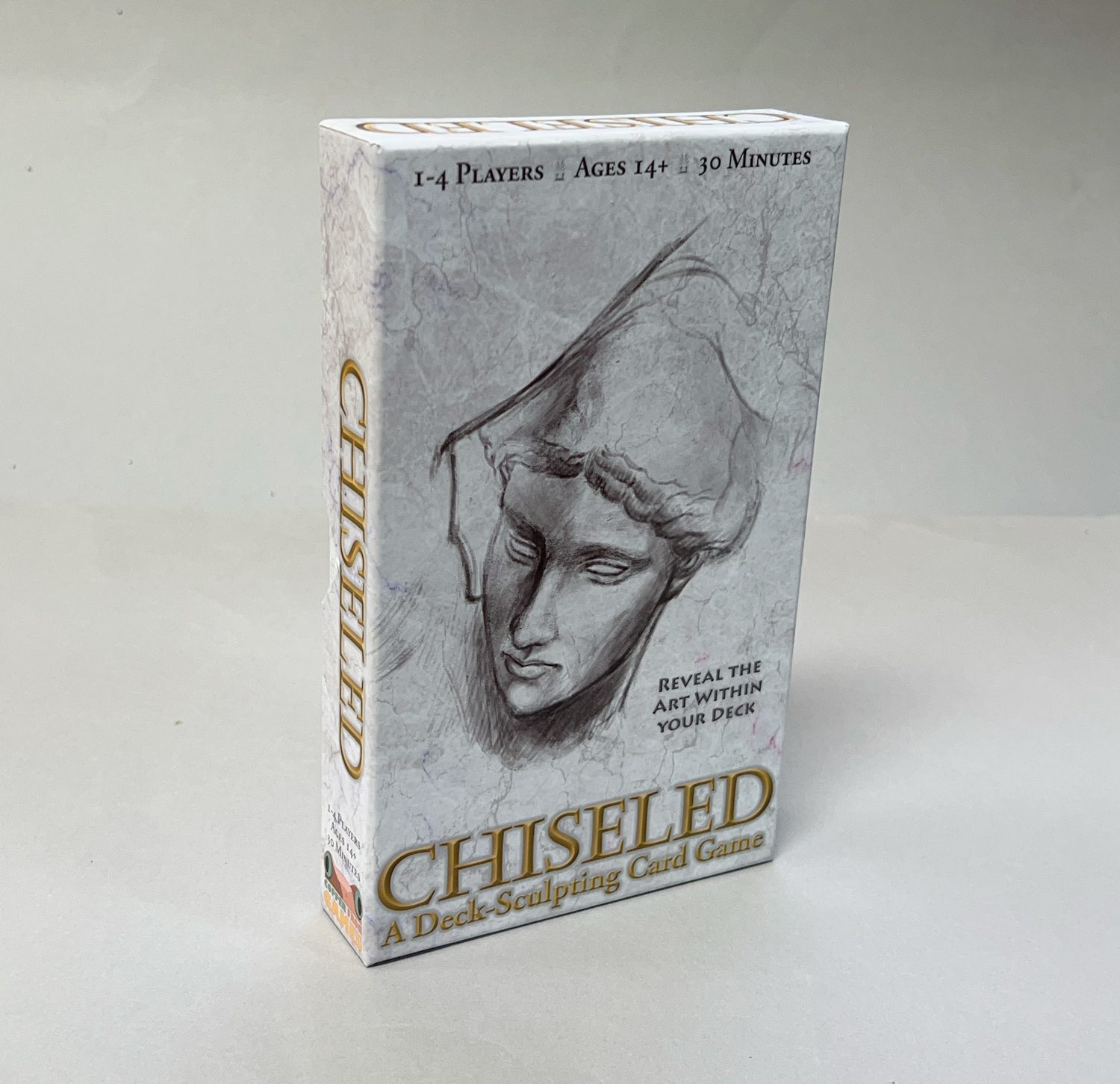
Setup & Play
In Chiseled you play as sculptors; your block of marble is your deck of cards. Just as a sculptor’s job is to use their tools to remove all the marble that is not part of the finished sculpture, your job is to use your tools to do the same with your deck. If you do this better than your opponents, you’ll win the game.
(Mind you, a true sculptor will create a single sculpture from a block of marble. Here, you’re doing something less marble auteur and more production line chisel hacker carving only heads, torsos, and arms. A minor detail, I assure you.)
Your starting deck of 45 cards consists of 9 heads, 9 torsos, 9 arms, and 18 pieces of scrap rubble. Once your cards are thoroughly shuffled, you’ll set them in the draw pile area of your player board.
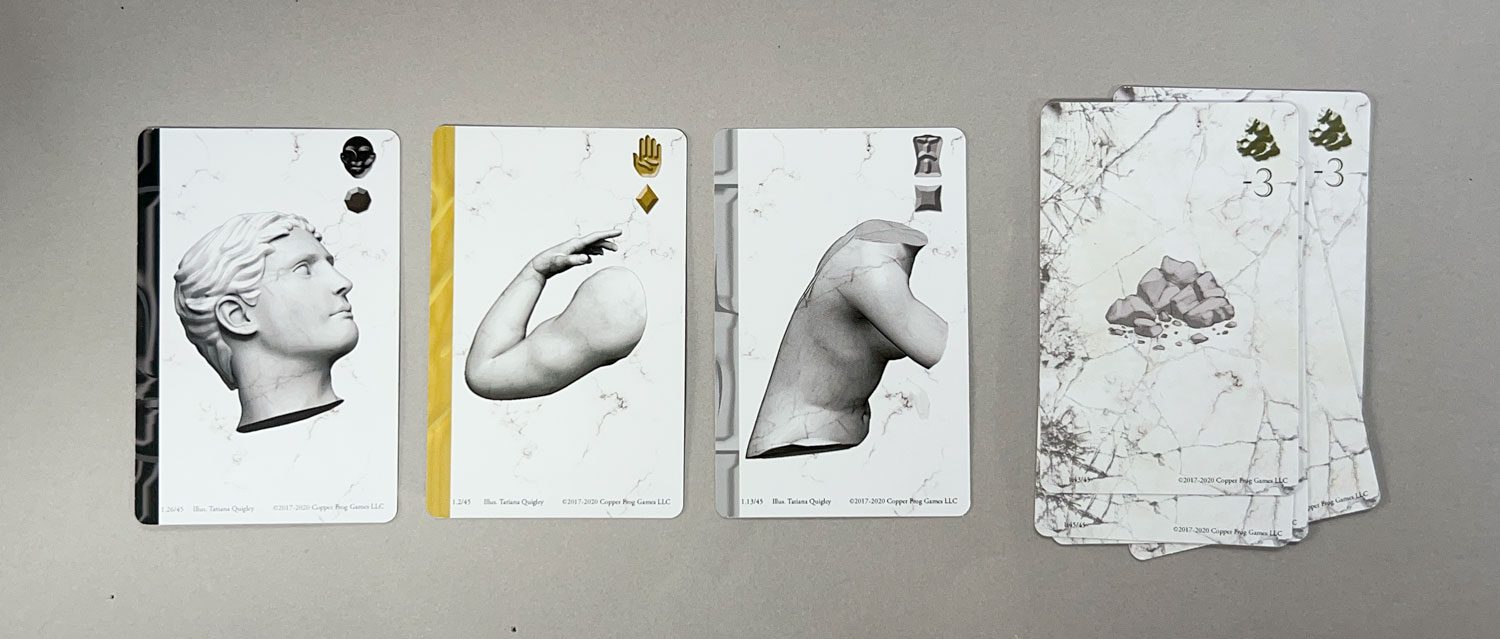
You’ll then shuffle and randomly draw seven of the thirteen Tool cards, as well as three Critic cards. Place the Tools within easy reach of all players. The Critics should be visible, but as they only come in during end-game (bonus) scoring, players can review them and set the cards aside.
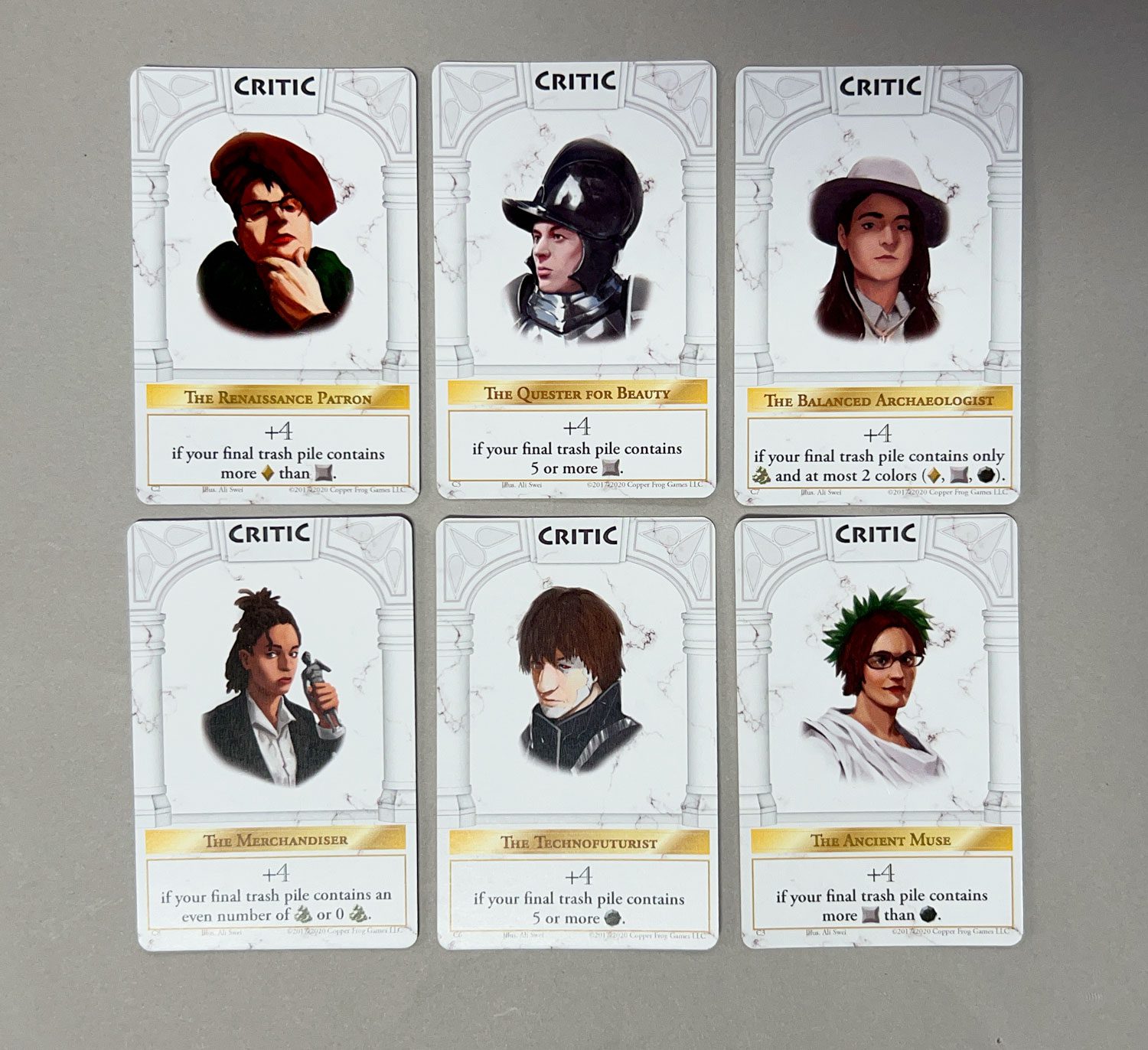
Scoring is where things get interesting. Every head in your discard pile at the end of the game is worth 2 points. Torsos, however, max out at only five torsos in your discard pile: more or fewer than five will score a disproportionate amount of fewer points. Arms are tricky: you only want to have two at the end of the game. Fewer arms score 0 points, while additional arms score a decreasing number of points—but only with even numbers of arms saved. Rubble, however, is just bad: each rubble card you have at the end will cost you -3 points.

A turn in Chiseled is simple and quick: draw the top three cards of your draw deck, choose one of the face up Tool cards, and resolve its effects. Tool cards will allow you to Trash cards in your hand or draw deck or someone else’s draw deck. Sometimes you’ll get to choose which cards to Trash, while other times it will be a blind draw. Still other times you might get to Trash a card from the top of another player’s draw deck.

After resolving the Tool’s effects, you’ll turn the Tool card face-down. You then place the remaining cards in your hand to your Discard pile and draw three new cards from your Draw deck for your next turn.
Players will continue in this way until all the Tool cards have been turned face-down. The Tool cards will then be flipped face-up and play will continue. The number of Tools ensures a different person will always get that last Tool/first choice of all Tools each time throughout the game.
Should you run out of cards in your draw pile (which you probably will), reshuffle your discard pile and make those cards your new draw pile.
Each player will also have a Check-In card. Starting with five chances, each time you draw the top three cards off of the deck and they do not include a rubble card, you decrease your Check-In number by one. When the first player reaches zero, all other players get one more turn and the game ends.
Players then collect the cards in their draw and discard piles. You’ll separate them by the three body parts and tally them each against the points chart on your player board. Then take your trash pile and compare the cards there with the three Critics’ criteria.

Thoughts
I first played Chiseled as a solo game. Those games were enjoyable, trying to work out which Tool to use when. I was left wondering how it would play as a multi-player game. It turned out my first multi-player game was equally as interesting. With each player using one of the available Tools, I had to assess my options against which Tools were left when it came back to my turn.
This led me to think Chiseled could be included in my friend and colleague K. David Ladage‘s article on games that play equally well with a group or solo.
However, when I played Chiseled a few more times, including a second game with my weekly group, the game started showing its limitations. Yes, the Tools changed from game to game, but they all did more-or-less similar things. Your starting deck never changed. Games tended to end at about the same point (a turn or two after reshuffling your discard pile). What had started out as an interesting game now seemed more than a bit bland.
I realized Chiseled had already shown me everything it had to show. At its heart, it is a luck-based, card-counting game that is easy to teach and play, but lacks the depth to keep me hammering away at it.
For my group to go from “It’s a nice little filler” to “We don’t have to play that again” in two weeks says something. Despite wanting to like Chiseled, it has left me stone cold.



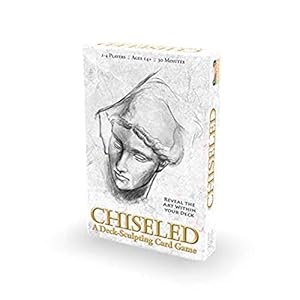


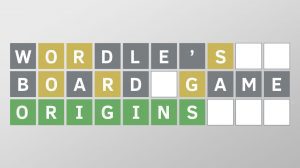
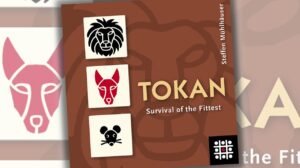




Add Comment